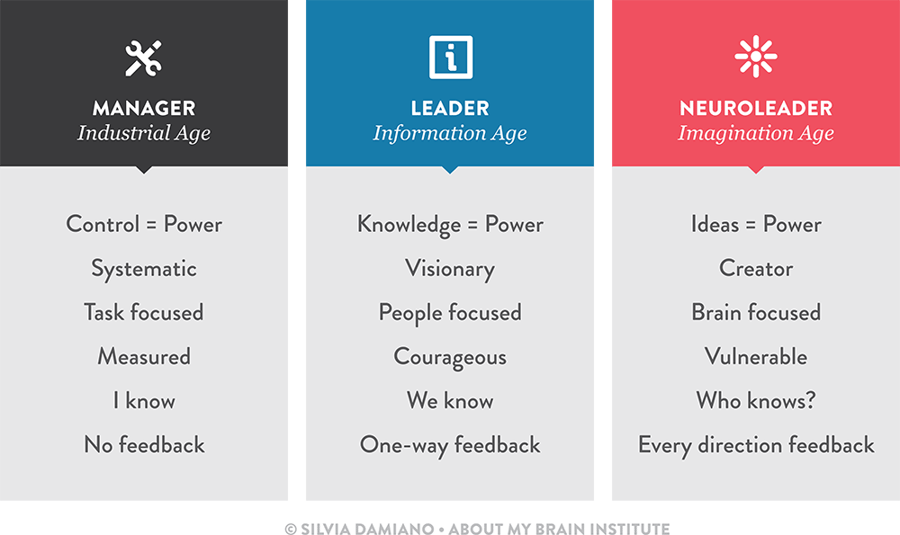
Many things have occurred during the past ten years, including economic ups and downs, social unrest across nations, a global pandemic and an unprecedented lockdown for billions of people. The relationship we have with our minds and bodies has inevitably been altered because of this turbulence. Our mental health has suffered, we have lost many lives and we have had to face harsh realities about humankind and how we handle tough situations. But there is still hope for the future.
As leaders and coaches, we must provide calm from within the storm. We have an opportunity to make lasting changes that can positively impact the mental, physical and emotional wellbeing of those around us, but only if we are brave enough to act.
2023 marks ten years since the first Certification Program for the i4 Neuroleader™ Model & Methodology. To commemorate our past and celebrate what is yet to come, we are excited to announce the release of a Diploma Program called the ‘Neurobiology of Coaching, Wellbeing and Brain-Friendly Practices’. You can enrol here.
This Diploma includes the self-paced i4 Neuroleader™ Certification and six months of virtual live interactions with experts in the coaching and leadership industry. If you are already certified or currently completing the certification program, you can upgrade to our Diploma here!
Mental health support has historically been lacking for most people around the world. As we all struggle to adjust to the dramatic changes brought upon by the pandemic, it is quite clear this support is still falling short of what is actually needed.
The medical profession is feeling the strain, and governments are overwhelmed with increasing demand for mental health care. It is a ‘must’ for us to educate ourselves and learn new ways of developing mental toughness and resilience--not just for survival, but for success.
As we face this new reality, we find ourselves on a precipice. Now is the time to make serious changes, but will we? As leaders and coaches, are we ready to push ourselves beyond what we know and step into the unknown? Neurocoaching is progressing with leaps and bounds as research and technology continue to unlock insight into how the brain and body work together for overall health.
At the About my Brain Institute, we believe in embracing our own leadership and supporting a healthy brain and body, which will help us develop a new mindset for the future. The possibilities are limitless if we optimise leadership performance, collaboration, innovation and agility while developing brain-friendly cultures and teams.
In our Whitepaper, ‘Building Leaders for the Imagination Age’, we discuss how leadership has evolved over the past hundred years or so. During the Industrial Age, managers had all the power, and employees were expected to do as they were told1. In this time period, control equalled power and feedback was nonexistent. Then, we progressed to the Information Age, where knowledge equalled power. Leaders were visionary, but feedback was still one-directional from the top down.

Finally, we have entered the Imagination Age, where ideas are power. Feedback is in every direction, and we strive for creativity instead of conformity. Instead of micromanaging, we recognise that high performance is achieved when we have clear expectations of the results, the tools for success are provided, and people are left alone to get results.
Gone are the days of over-the-shoulder managers telling employees what to do with every moment of the day. And thank goodness, because now we open the door to so many possibilities.
Leaders of the Imagination Age depend on the wellness of their brains, which necessarily demands the wellness of their bodies.
Katharine McLennan
In the National Geographic documentary, ‘Limitless’ with Chris Hemsworth2, we realise that even a famous actor can have difficulty managing stress. Whether it’s the demands of a role, children and family life, or the media chasing him around, we all have our limits. Our personal stressors might be somewhat different than those of Chris Hemsworth, but we all have them. The question is, can we train our minds to be limitless and reinforce better habits for a happier life?
Hemsworth looks into recent research to shatter the conventional ideas regarding fighting illness and aging. Anyone who has seen movies starring Hemsworth can argue that he is in top physical condition, but he wanted to see how to extend his intellect and health as he continued to age.
The show features six episodes, exploring topics such as stress, the importance of fasting and exercise and learning to disconnect from the digital world.
There are many lessons to be learned from the documentary, ‘Limitless’. We can all learn how to become a better version of ourselves while using our limited time in this life to accomplish things that we enjoy and are passionate about.
To become happier, healthier leaders, we must first look within. We need to ask ourselves if we have the skills required to usher in a new era of leadership. We must establish a solid foundation of trust between ourselves and those we mentor and work with. By creating this mutually respectful base, we can help develop the resilience and grit needed to thrive in this post-pandemic era.
It isn’t enough anymore to merely shuffle paperwork and complete tasks; we need leaders who understand how the mind and body work together to increase productivity, creativity and innovation. Leadership and coaching go hand-in-hand, and we can better nurture and support leaders by becoming more knowledgeable coaches. When coaches use neuroscience as their guide, leaders are able to make this jump and learn what it means to be brain-friendly.
Coaching is one of the first points where leaders can change the culture and environment within an organisation, so why not apply neuroscience to create neurocoaches? With new research and technology at our fingertips, it seems wasteful not to embrace every resource available to better tackle the problems we face as a society.
When we properly educate ourselves, we can better work for others. Learning to become a neurocoach is more than taking a course or reading a book; instead, we must be aware that how we think and live will likely change. While we seek to better ourselves in our careers, why not enjoy the fruits of our labours in all aspects of our life?
Coaches are becoming more valuable than ever. Whether you are a leader, a parent or a professional, learning to talk to people in a way that unlocks their abilities is an invaluable skill. Identifying and overcoming obstacles, particularly when it comes to managing our brain and wellbeing, is paramount.
In a not-so-distant future, everyone will have a coach to help guide them in work, relationships, fitness, nutrition, leadership or whatever they need.
Daniel Coyle, Author of The Talent Code
In our book, ‘Brain-Friendly Leadership: The 9 Habits of a Future Fit Mind’, we made the case for individual habits that can help you get ahead in this chaotic world. They are simple yet powerful. Now, it is time to extrapolate these habits so that we coach others for wellbeing while providing the leadership tools they need to get ahead.5
In our quest to become better leaders and coaches, we closely examined our biological system from the brain down in our documentary, ‘Make Me a Leader’. Interviews and discussions with scientists worldwide provided strategies to improve wellness and performance and offered insights about brain health, sleep health, the mind-gut connection and how to develop resilience.6
Using all the knowledge gained from our research work, publications and a decade of practical experience, the ‘Diploma of Neurobiology of Coaching, Wellbeing & Brain-Friendly Practices’ will provide a new lens for those experienced and upcoming coaches keen to develop the leaders of tomorrow.
Citations:
These Stories on Our News

Founder & CEO
About my Brain Institute
Scientist, educator, author, speaker, coach, award-winning leadership specialist, filmmaker and creator of the i4 Neuroleader Model & Methodology.
Silvia's scientific background and curiosity about the human brain led her to a decade long journey of research into optimal brain functioning and the application of neuroscience in leadership and daily life. Her past and current roles have uniquely prepared her for the current undertaking, that of leadership activist & change agent.
Silvia Damiano founded The About my Brain Institute in 2009, with the purpose of democratising leadership & neuroscience. She has a passionately held belief, that leaders in our 21st century global economy and their organisations must radically change long-held ideas of what constitutes effective leadership
In her ground-breaking books ‘Leadership is Upside Down’, ‘Brain-Friendly Leadership’ and the 2018 documentary ‘Make Me A Leader’, Silvia provides both compelling evidence and explores the importance of leadership in our personal and professional lives and what it takes to develop the human behind the leader.
Silvia has worked in different countries, across many industries, helping teams and organisations improve business performance. Silvia’s clients have described her as a passionate, dynamic, a highly experienced speaker and master facilitator on the topics of Emotional Intelligence, Cultural Change, Neuroleadership & Engagement.
Silvia is passionate about leaving a legacy of well-rounded leaders who can act and decide in a way that better serves humanity. Her clients include Microsoft, Australian Stock Exchange, NSW Government, VISA, Fuji Xerox and Manpower amongst many other global companies.
Monday to Friday
9:00am - 5:00pm (AEST)
Sydney, Australia
We reply within 48 hours!
General Business Enquiries:
hello@aboutmybrain.com
Technical Support:
support@aboutmybrain.com
No Comments Yet
Let us know what you think